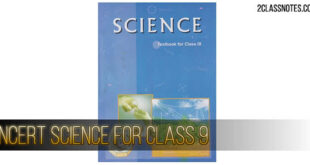Question: What is the name of the Chinese Parliament?
Answer: The name of the Chinese Parliament is the National People’s Congress.
Question: What was the ‘Legal Framework Order’ passed by Prevez Musharraf in August 2002?
Answer: The Legal Framework Order, 2002 was issued by Pakistani president Pervez Musharraf in August 2002. It provided for the general elections of 2002 and the revival of the 1973 Constitution of Pakistan, and added numerous amendments to the Constitution. The following month, the Supreme Court overruled Musharraf, ruling that the amendments would have to be ratified by Parliament in the manner provided in the unamended 1973 Constitution—the amendments would have to be approved by two-thirds of both houses of the bicameral body.
After the October 2002 general elections, although Musharraf’s supporters had a majority in Parliament, they did not have the required two-thirds super-majority to ratify the Legal Framework Order. Parliament was effectively deadlocked by strident opposition from Musharraf’s opponents for over a year. In December 2003, a faction was persuaded to vote for a compromise amendment bill, the Seventeenth Amendment to the Constitution of Pakistan. With this amendment, parts of the Legal Framework Order were incorporated into the Constitution.
Question: Each of these statements contains a democratic and an undemocratic element. Write out the two separately for each statement.
1. A minister said that some laws have to be passed by the parliament in order to conform to the regulations decided by the World Trade Organisation (WTO).
2. The Election Commission ordered re-polling in a constituency where large-scale rigging was reported.
3. Women’s representation in the parliament has barely reached 10 per cent. This led women’s organisations to demand one-third seats for women.
Answer:
- Democratic: Passing of the laws by the Parliament.
Undemocratic: Conforming to the regulations decided by the World Trade Organisation. - Democratic: The order to re-poll by the Election Commission.
Undemocratic: large scale rigging was reported - Democratic: Demand by Women’s Organisation to reserve one-third seats for women.
Undemocratic: Women’s representation in the parliament is less than 10 per cent.
Question: Which of these is not a valid reason for arguing that there is a lesser possibility of famine in a democratic country?
1. Opposition parties can draw attention to hunger and starvation.
2. Free press can report suffering from famine in different parts of the country.
3. Government fears its defeat in the next elections.
4. People are free to believe in and practice any religion.
Answer: 4. “People are free to believe in and practice any religion” is not a valid reason because there are lesser changes for famine to take place in a democratic country. This is because practicing of a religion is not at all related to famine.
 Class Notes NCERT Solutions for CBSE Students
Class Notes NCERT Solutions for CBSE Students




